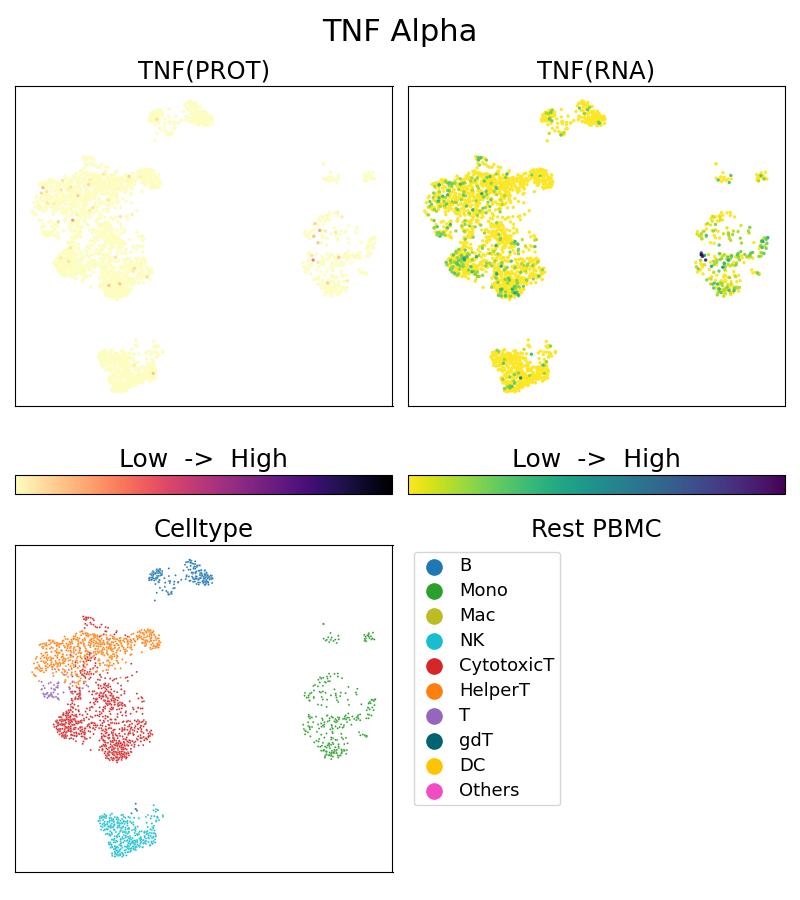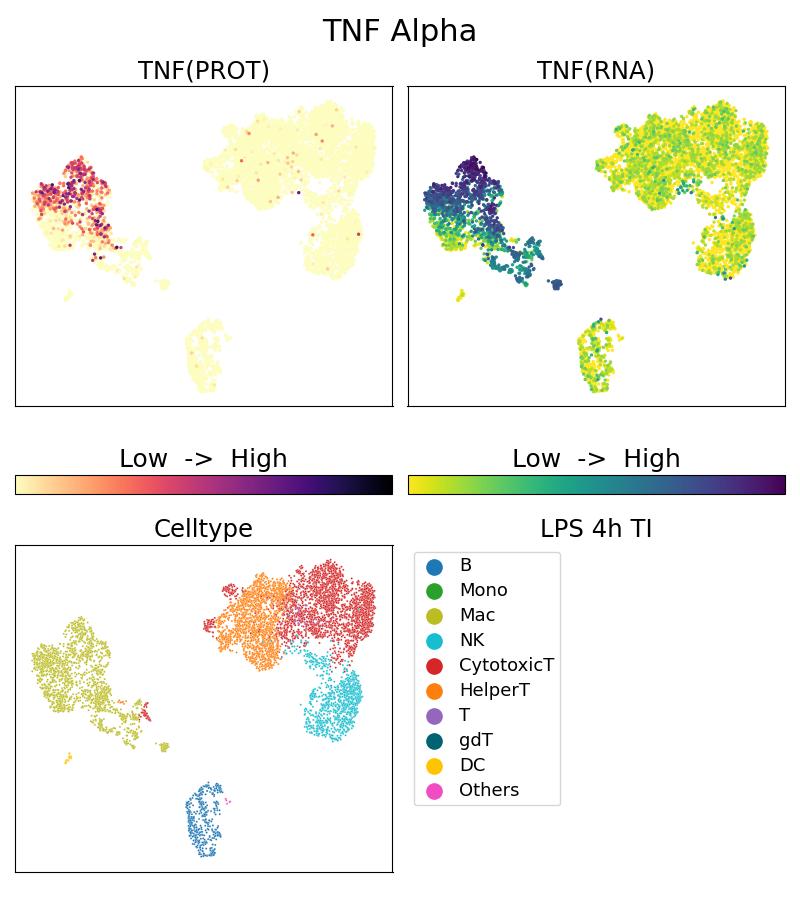TNF Alpha Monoklonaler Antikörper
TNF Alpha Monoklonal Antikörper für Single Cell (Intra)
Wirt / Isotyp
Maus / IgG2b
Getestete Reaktivität
human
Anwendung
Single Cell (Intra)
Konjugation
5CFLX Fluorescent Dye
CloneNo.
7B8A11
Kat-Nr. : G60291-1-5C
Synonyme
Geprüfte Anwendungen
| Erfolgreiche Detektion in Single Cell (Intra) | 10x Genomics Gene Expression Flex with Feature Barcodes and Multiplexing product |
Empfohlene Verdünnung
| Anwendung | Verdünnung |
|---|---|
| SINGLE CELL (INTRA) | SINGLE CELL (INTRA) : <0.5ug/test |
| It is recommended that this reagent should be titrated in each testing system to obtain optimal results. | |
| Sample-dependent, check data in validation data gallery | |
Produktinformation
G60291-1-5C bindet in Single Cell (Intra) TNF Alpha und zeigt Reaktivität mit human
| Getestete Reaktivität | human |
| Wirt / Isotyp | Maus / IgG2b |
| Klonalität | Monoklonal |
| Typ | Antikörper |
| Immunogen | TNF Alpha fusion protein Ag11413 |
| Vollständiger Name | tumor necrosis factor (TNF superfamily, member 2) |
| Berechnetes Molekulargewicht | 233 aa, 26 kDa |
| GenBank-Zugangsnummer | BC028148 |
| Gene symbol | TNF-alpha |
| Gene ID (NCBI) | 7124 |
| Konjugation | 5CFLX Fluorescent Dye |
| Form | Liquid |
| Reinigungsmethode | |
| Lagerungspuffer | PBS with 1mM EDTA and 0.09% sodium azide |
| Lagerungsbedingungen | 2-8°C Stable for one year after shipment. 20ul Größen enthalten 0,1% BSA. |
Hintergrundinformationen
TNF, as also known as TNF-alpha, or cachectin, is a multifunctional proinflammatory cytokine that belongs to the tumor necrosis factor (TNF) superfamily. It is expressed as a 26 kDa membrane bound protein and is then cleaved by TNF-alpha converting enzyme (TACE) to release the soluble 17 kDa monomer, which forms homotrimers in circulation. It is produced chiefly by activated macrophages, although it can be produced by many other cell types such as CD4+ lymphocytes, NK cells, neutrophils, mast cells, eosinophils, and neurons. It can bind to, and thus functions through its receptors TNFRSF1A/TNFR1 and TNFRSF1B/TNFBR. This cytokine is involved in the regulation of a wide spectrum of biological processes including cell proliferation, differentiation, apoptosis, lipid metabolism, and coagulation. This cytokine has been implicated in a variety of diseases, including autoimmune diseases, INS resistance, and cancer.



